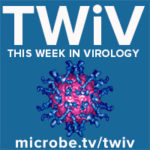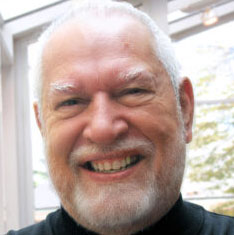Douglas writes:
First of all thank you and the rest of the TWIV team for an amazing show. I am an Emergency Physician in California. Keeping up to date about COVID with your calming voice actually helped relax during the election season! I have a couple of questions/requests. When reporting the results of clinical trials can you please give results in terms of absolute reductions of endpoints and the NNT as opposed to relative reductions? ARR and NNT is a much more accurate reflection of efficacy and more clinically useful statistics..
Additionally, you are very enthusiastic about the use of monoclonals but my take on published studies is that it is marginal at best for preventing significant complications of COVID 19, with the best data showing an NNT of about 20 to prevent “an emergency department visit or hospitalization “ and larger studies showing no clinically relevant outcomes. Is there something that I am missing ? I realize the recent press release for bamlanivimab and etesevimab reported a statistically significant (5% ARR) in hospitalization or death in patients “recently diagnosed “ with COIVD 19. I would assume they did not find a statistically significant decrease in death alone otherwise the press release would have mentioned it. The IDSA currently does not endorse the use of these drugs. While I have been working on getting monoclonals for our Medicaid patients primarily on the basis of health equity, I am not sure it’s worth the effort and cost ($1275 infusion fee that our hospital charges) for our uninsured.
Douglas Yoshida MD
Al writes:
Hey Daniel – I’m an ID doc north of the border in Canada. Due to the delayed vaccine roll out here from international supply restrictions of vaccine shipments, our province recently moved to delay the 2nd shot of the mRNA vaccines for 4 months, citing the UK and Israel data for effectiveness after a single shot. Many front line workers who see covid patients including myself have now had their second shot cancelled. I’m aware of the UK and Israeli data. I myself feel like we are playing with fire doing this, having a large unboosted population seems like a good way of developing escape variants as well as not adequately protecting front line health care workers. I am really curious what an outsider’s perspective would be on this, as it is very difficult to voice a clinician’s perspective over very tightly controlled public health messaging.
PS thanks for your podcast, I listen to them while working out in my ad hoc garage gym.
Thanks,
Al
Miles writes:
My daughter-in-law is pregnant for the first time. She’s at 11 1/2 weeks. Does the lower reactogenicity of the J&J vaccine make it a safer bet for her? At what point should she get vaccinated?
Miles
Gary writes:
Hello Dr. Griffin,
Can you tell me what it means that Janssen covid vaccine protects 85% against severe disease and 100% against hospitalization? I thought severe disease meant “requires hospitalization.” What severe covid disease does not require hospitalization?
Thanks
Gary






